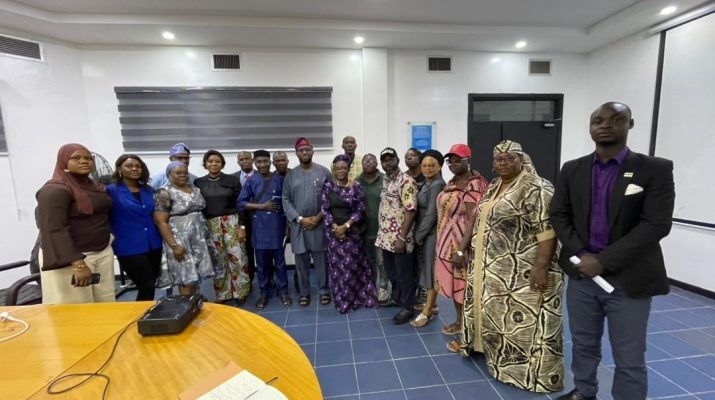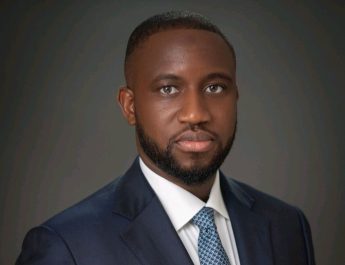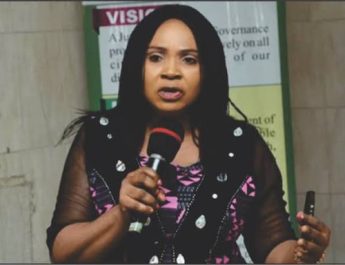Dogged by the challenge of providing clean, reliable and affordable water to Lagos residents over time, the Lagos Water Corporation (LWC) pledges renewed commitment to reinvent the wheel with a view to providing workable solutions to lack of water through Public Private Partnerships (PPPs) and a pilot scheme that would benefit all segments of Lagos residents
By Edu Abade
In a move to get public buy-in and douse tensions emanating from resistance from members of public and civil society organizations (CSOs), management of the Lagos Water Corporation (LWC) has denounced speculations that it was bent on prioritizing profits over the people in its quest to revive the state’s public water utilities and assets, maintaining that it was only interested in exploring workable solutions to the the state’s persisting water crisis.
The Corporation explained that the pervading general understanding of the Public Private Partnerships (PPPs) was at variance with the common notion of privatization, which members of the public have been made to believe over time, insisting that its PPP model remains a scheme that would ensure that while partnering with private firms to improve water services, ownership of state’s critical water assets remain the state government.
Managing Director of LWC, Engr. Muhktaar Tijani, who addressed some of the concerns with members of the management team, including Executive Director, Operations, Mrs. Lanke Taiwo and Director of Finance at an engagement session with CSOs tagged: Transforming Lagos Water Together, stated that although water services have not been optimally provided in the state, all hands were on deck to proffer lasting solutions to the Lagos water crisis.
Monitoring and Evaluation Manager of LWC, Mrs. Titilola Bright-Oridami, who presented management’s position to representatives of no fewer than 10 civil society groups and community representatives, explained that the PPP model being sought would ensure that the Lagos Water Corporation retains ownership of all assets, while working collaboratively with civil society, communities and stakeholders.
“To ensure transparency and accountability, we will set up oversight committees, disclosure of contracts and independent monitoring to ensure that reforms prioritize citizens as against profits. Our shared vision for access is such that our collective mission is to deliver safe, affordable and reliable water for all Lagos residents by building trust across communities
“In our five-year strategic business plan for 2025–2030, we launched the Lagos Water Corporation’s roadmap to restore, modernize and sustain Lagos’ public water supply, closing the demand–supply gap and ensuring operational viability. One of our Key Strategic Priorities according to this Plan is to revive micro and mini-waterworks in annual batches, with private-sector management,” she stated.
She also explained as the economic hub of Nigeria, the realities remain that with a population of 18 million and projected to reach 29 million by 2030, current water demand at 2.82 million m³/day with an installed capacity of 795,000 m³/day, which translates to only 40 percent of demand met due to rapid urbanization outpacing infrastructure, Lagos water should face challenges.
Such challenges, Bright-Oridami said include ageing facilities, high levels of non-revenue water, theft and under-utilised plants, as well as high dependency on private vendors and boreholes, plus affordability and quality concerns.
On the scope and strategy for resuscitating LWC Infrastructure, she disclosed that plans are being perfected to upgrade four major treatment plants, 48 mini and micro waterworks, while a concessioning arrangement of seven priority waterworks in four lots, which constitutes less than 10 percent of the state’s total mini and micro waterworks is being designed to improve efficiency and reliability, expand connections, rehabilitate and upgrade facilities, as well as operate and maintain to world-class standards
Also presenting an overview of the seven waterworks, she explained that there are four (4) lots under the pilot scheme comprising Lekki with 9000 m3 par day capacity and 27.5 percent utilized and the Akilo with 4500 m3 per day capacity under rehabilitation; Victoria Annex with 4500 m3 per day capacity that is currently operational and a 9000 M3 per day capacity Magodo facility under rehabilitation.
Others are the 9000 m3 per day capacity Abesan facility with 13 percent utilization; the operational 9000 m3 per day capacity Alexander and the 9500 m3 per day Apapa asset with a 50 percent untilization level.
Further clarifying misconceptions, the management stressed that PPP is not the same as privatization, adding, “LWC retains full ownership of all water assets. The PPP introduces private support only to improve efficiency and service delivery. It is also not the sale of public water as there is no transfer of water rights or assets to private hands; Lagos’ water remains a public good. Assuring of accountability, the LWC pointed out that there would be strong oversight through regulators, CSOs and members of the public through reporting mechanisms that guarantee transparency and prevent misuse with robust insights from civil society engagement, which expressed fear over tariff increases, transparency and accountability, jobs security and equitable access to water, particularly from informal settlements and low-income households.
On the risks and complexities, the LWC said members of the public often cite higher financing costs, complexity and high transaction costs, long-term rigidity, as well as public and political controversy, maintaining that critics often see PPPs as privatization, which has largely led to skepticism, mistrust and political pushback.
Also, safeguards and mitigation processes aimed at protecting citizens, workers and communities through affordability with Lifeline tariffs and targeted government interventions will protect low-income households, ensuring access to essential water services.
Others are job security ensuring that LWC staff will benefit from retraining, secondment opportunities and full pension protection under Nigerian labor law and transparency through a public disclosure portal and independent monitoring will make contracts, performance metrics, and revenues visible to all.
The system would guarantee flexibility in that contracts will include renegotiation clauses and clear governance mechanisms to adapt to changing realities.
Benefits for citizens include reliable water supply through extended service hours and improved quality, reducing reliance on unsafe or costly alternatives; transparent tariff setting under LASWARCO supervision, with affordability protections for low-income groups; grievance redress through hotlines, liaison offices and community platforms give citizens direct channels for complaints and resolution.
We will also ensure that we put in place a community service charter developed with the CSOs to guarantee service standards and accountability to citizens.
The LWC further cited global lessons and best practices, saying, “Malawi’s Public-Public Partnerships demonstrated that government-to-government collaboration can improve access and equity, with strong community engagement. Manila, Philippines recorded success in PPPs and independent Key Performance Indicators (KPIs) scorecards and escrow-based revenue management built trust and improved service coverage.
“In Nairobi, Kenya, CSO Roundtables were set up for structured engagement with civil society reduced conflict and improved acceptance of water reforms. And in Uganda, NWSC–Service Charters were co-designed with consumer groups, ensured accountability and better service delivery outcomes.”
To further allay the fears of Lagos residents on the PPP model, the Corporation pledged that it was partnering for affordable, transparent and inclusive water reform that would end up in affordable access, transparency and accountability, inclusive partnership, insisting that PPP is not privatization and that the LWC retains asset ownership, while PPP brings efficiency, investment and safeguarding public interest.
Civil society groups and community representatives that attended the engagement session include Gbolahan Oladejo (Tender Care Initiatives); Ibironke Daniel (Akoka Community Development Association); Esther Nwaiwu (TNCI Africa); Temitope Lawal (BAYAWO Foundation) and Arnold Uyeye (Dave Enechukwu Foundation).
Others are Yemisi Taiwo (Community Advocacy); Yakubu Esther (Shomolu-Bariga CDA); Blessing Obiuwevbi (People Empowerment and Social Development Initiative (PESDI); Suliyat Eletu (Development Communication Network) and Hon. Aladeyelu Azeez of Health Awareness and Gender Advocacy Initiative (HAGAI).
During the questions and answers session, they expressed concerns about the workability of the pilot project, availability and affordability of water and the possibility of metering just like electricity billing, among other pressing issues to which Tijani responded in the affirmative, saying that the success of the phase I would determine a gradual up-scaling of the 10 percent of LWC’s assets to other serious concessioners.
“If we get it right, what happened in the telecommunications and power sectors is very likely in the Lagos water sector, but our major priority is in delivering better and world-class water services to Lagos residents so that we do away with the era of lack of potable water and end a situation where majority of Lagos residents are struggling with drilling boreholes for themselves at every instance.
“One take away from this stakeholders’ engagement is that since we are all brainstorming on the best ways of achieving better water services in Lagos State, everyone who has participated in the process including staff members of LWC will be favourably judged by posterity when we eventually achieve our long-term goal of getting clean water to all Lagos households,” he said.




